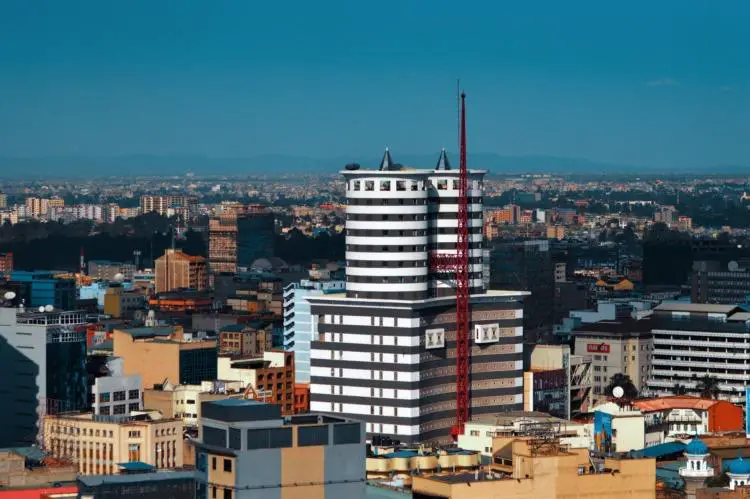Economic activity in East Africa is estimated to have declined to a growth of 0.9 percent in 2020 from 6.6 percent in 2019 and is projected to recover to a growth of 3 percent in 2021.
This is revealed in Deloitte’s East Africa Economies Report 2021 which attributed the expected growth to the projected increase in private consumption and domestic demand after the easing of travel restrictions and roll out of COVID-19 vaccinations.
The report shows that massive job losses, disruptions in food value chains and multiple shocks of desert locusts saw an additional 30 million Africans pushed into extreme poverty in 2020.
“About 39 million more Africans could fall into extreme poverty in 2021 if governments do not intervene with food relief measures,” it reveals.
The report puts loss of jobs in 2020 at 30 million, 10 million higher from the previous forecast of 20 million in Deloitte’s previous publication. This raises the continent’s unemployment rate to about 10.8 percent from an average of 6.2 percent in 2019.
Tax cuts amidst the pandemic and widening fiscal deficits saw African countries average Debt-to-GDP ratio increase from 57.6 percent in 2019 to about 65.7 percent in 2020.
This is forecast to rise by 10 to 15 percentage points in the medium term (2021-2025).
Meanwhile, foreign Direct Investments (FDIs) declined by an estimated 16 percent from USD 47bn 2019 to USD 40bn in 2020 while remittance Inflows- a key source of foreign currency receipts are estimated to have plummeted by 9 percent.
Hospitality
Deloitte reveals that African airlines lost more than USD 8 billion in revenue in 2020, 2 billion worse off than what they has estimated in the first publication, marking an estimated 40 percent decline in revenues from 2019.
Net losses are estimated to improve from a loss of USD 2.0 billion in 2020 to a loss of USD 1.7 billion in 2021.
Travel and Tourism job losses for 2020 are estimated at 15 million while GDP loss attributed to the sector is estimated to average USD 87 billion, USD 37billion worse off from their previous estimate. Globally, Travel and Tourism job losses for 2020 are estimated at 174.4 million.
“Across the East African region (with the exception of Uganda that is under a 42-day lockdown from 18 June 2021 to 30 July 2021), most of the social distancing measures put in place at the onset of the pandemic have now been eased with borders opening for external trade and airlines embarking on international flights,” the report notes.
https://theexchange.africa/investing/tanzania-rwanda-top-investment-destinations-eac-survey/
Worldwide, the Aviation sector generated USD 372 billion revenue in 2020, marking a 55.6 percent decline from the USD 838 billion generated in 2019.
The firm expected revenues to grow to USD 458 billion in 2021, a 39.9 percent improvement from 2020.
However, amidst second/third wave of infections globally, the sector is not expected to recoup this loss.
The report notes that in more than half of emerging market and developing economies (EMDEs), per capita income losses in 2020 reversed more than half a decade of income gains.
“A year later since COVID-19 was declared a global pandemic, most nations have covered immense ground in flattening the COVID-19 curve while vaccinating their citizens thus turning around their economies towards recovery while others are still grappling with the effects of a second/third wave of infections,” the report notes.
“However, as the world seeks to comprehend the new normal, we still face many unknowns with the recovery largely expected to be bumpy and slow,” it adds.
COVID-19 Vaccines
Deloitte notes that the vaccine roll-out process in East Africa and largely Sub-Saharan Africa has remained largely slow due to logistical challenges, weak country administration, and public resistance.
About 18.2 million doses have been administered in Sub-Saharan Africa, reflecting a 1.7 percent share of the population, which is below the global average vaccination rate of 25.1 of the population.
“The delayed vaccine roll-out and the emergence of new variants indicate that the risk of a new wave of infections remains high in the region. This may impede the economic recovery in 2021 as nations will be forced to fall back to stringent social distancing measures witnessed in 2020,” the report notes.
As of July this year, the COVID-19 pandemic has taken more than 4 million human lives and seen economic stimulus packages across global economies surpass USD 13 trillion, four times more than the response to the 2008-09 financial crisis.
